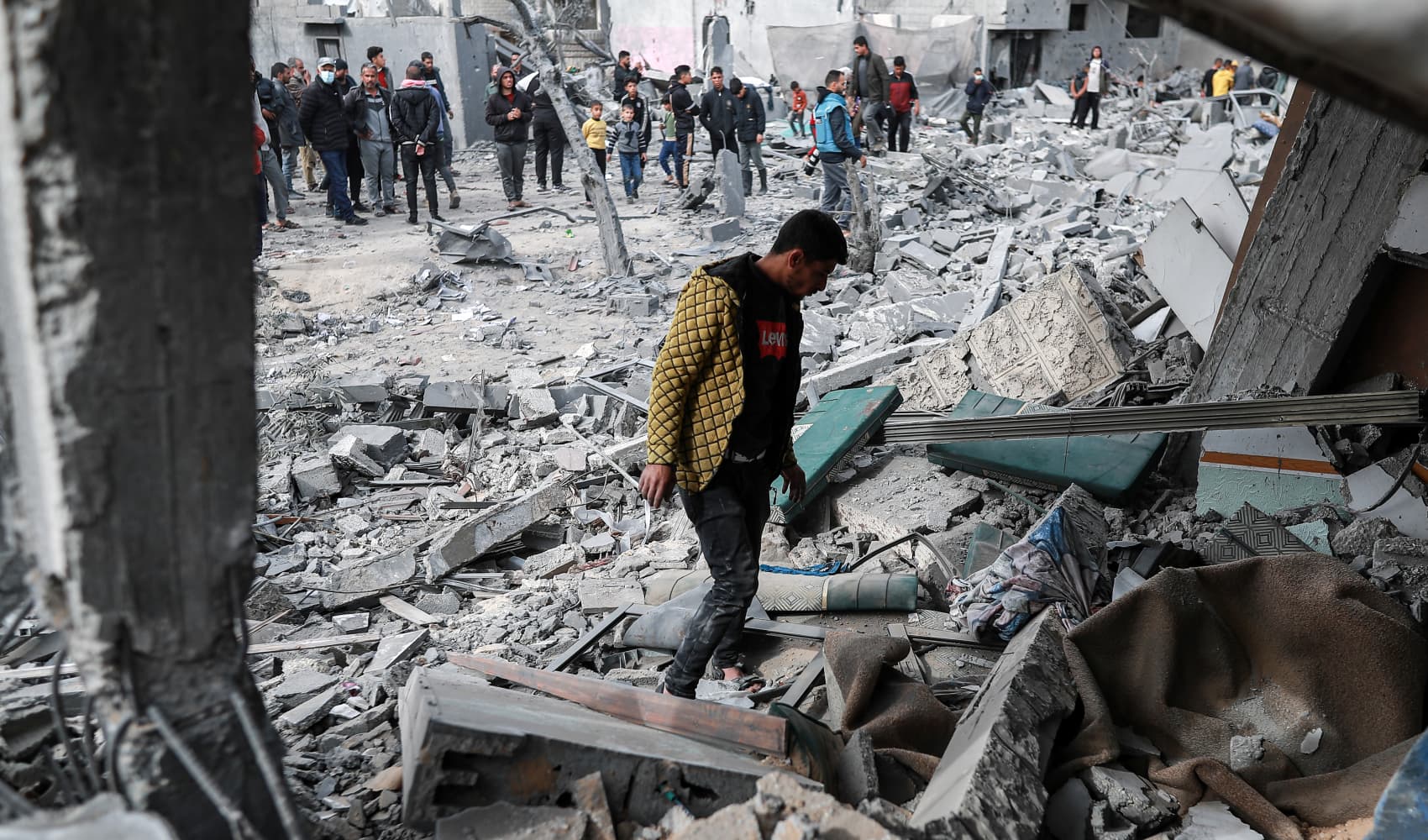
The bodies of three more hostages killed on Oct 7. were recovered overnight from Gaza, Israel's army said Friday, as the top United Nations court prepares to rule on whether Israel must halt its military operations and withdraw from the enclave.
The bodies of Hanan Yablonka, Michel Nisenbaum, and Orion Hernandez were found and their families have been notified. The army said they were killed on the day of the attack at the Mefalsim intersection and their bodies were taken to Gaza.
The announcement comes less than a week after the army said it found the bodies of three other Israeli hostages killed on Oct. 7.
Hamas-led militants killed around 1,200 people, mainly civilians, and abducted around 250 others in the Oct. 7 attack. Around half of those hostages have since been freed, most in swaps for Palestinian prisoners held by Israel during a weeklong cease-fire in November.
Israel says around 100 hostages are still captive in Gaza, along with the bodies of at least 39 more, while 17 bodies of hostages have been recovered.
Israeli Prime Minister Benjamin Netanyahu has vowed to both eliminate Hamas and bring all the hostages back, but he’s made little progress. He faces pressure to resign, and the U.S. has threatened to scale back its support over the humanitarian situation in Gaza.
Get Tri-state area news delivered to your inbox.> Sign up for NBC New York's News Headlines newsletter.
On Friday Netanyahu said the country had a duty to do everything to return those abducted, both those killed and those who are alive.
In a post on X Friday, French President Emmanuel Macron gave condolences to the family of Hernández-Radoux, a French-Mexican citizen, saying France remains committed to releasing the hostages.
The country is also expecting a ruling Friday afternoon by the International Court of Justice to decide on an urgent plea by South Africa to order Israel to cease operations. Israel is unlikely to comply with any such order. Even so, a cease-fire order by judges of the International Court of Justice would heap more pressure on an increasingly isolated Israel.
On the hostages, Israelis are divided into two main camps: those who want the government to put the war on hold and free the hostages, and others who think the hostages are an unfortunate price to pay for eradicating Hamas. On-and-off negotiations mediated by Qatar, the United States and Egypt have yielded little.
Anger is growing at home at the government’s handling of the hostage crisis.
Earlier this week a group representing the families of hostages released new video footage showing Hamas’ capture of five female Israeli soldiers near the Gaza border on Oct. 7.
The video shows several of the young soldiers bloody and wounded. In one scene, a militant tells one of the terrified women she is beautiful.
The video sparked more protests across the country calling for the hostages’ release.
The army said on Friday the hostages were found during an operation in Jabaliya. Military spokesman Rear Adm. Daniel Hagari said in a news conference that the army was able to retrieve the bodies based on “critical intelligence” uncovered last week by Israeli forces operating in Gaza.
The group representing the families of the hostages said the bodies had been returned to their families for burial.
Nisenbaum, 59, was a Brazilian-Israeli from the southern city of Sderot. He was taken hostage when he went to rescue his 4-year-old granddaughter.
Oryon Hernandez Radoux, 30, was taken from the Nova music festival, which he attended with his partner Shani Louk. Louk's body was one of those found by the army nearly a week ago.
Yablonka, 42, a father of two, was also taken from the music festival. His family in December told the AP that he loved music. Yablonka’s family had no news of him for nearly two months after he’d been taken, not knowing if he was alive or dead.
Israel’s offensive since the war began has killed more than 35,000 Palestinians, according to Gaza’s Health Ministry, and has caused a humanitarian crisis and a near-famine.
While it has weakened Hamas' capabilities, after nearly eight months of war, militants are regrouping in some of the hardest-hit areas in northern Gaza and resuming rocket attacks into nearby Israeli communities. Israel says its troops are operating in Rafah in the south, in central Gaza and in Jabaliya in the north.
——
Associated Press reporters Melanie Lidman in Tel Aviv and John Leicester in Le Pecq, France, contributed



